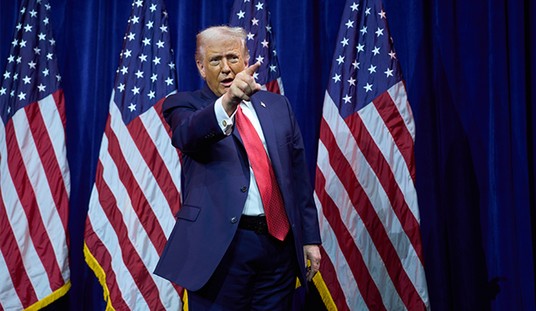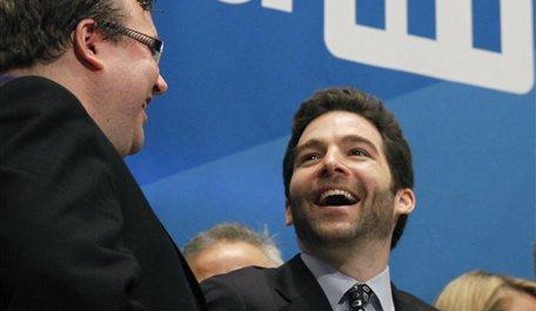We must be getting close to Election Day in Michigan for the Republican presidential primary. How do I know? Rick Santorum has begun to attack Mitt Romney on a more personal level, while Romney has begun to woo the Tea Party in the final few days. First, Zeke Miller at BuzzFeed reports on Santorum’s offensive against Romney — and Ron Paul:
Sen. Rick Santorum struck a sharper tone on the campaign trail today, criticizing Mitt Romney for questioning his conservative values and calling him an “Occupy Wall Street adherent.”
“It’s absolutely laughable to have a liberal governor of Massachusetts say that I am not a conservative,” Santorum said, attacking Romney’s tax plan. “We have a candidate for president who is campaigning as an Occupy Wall Street adherent.”
“He doesn’t understand how America works any more than Barack Obama understands how America works,” Santorum said, about Romney’s plan to cap wealthy individuals’ ability to deduct charitable contributions.
Santorum continued to insist that Ron Paul and Romney are colluding against him, and told the crowd that Paul was “no conservative.” How effective will this new messaging be? Paul is hardly an afterthought in Michigan, and Santorum seems to be falling into the same trap as Gingrich did with Romney. Going negative undermines his own message and will pull down enthusiasm for Santorum as an alternative to the ever-attacking Romney. Santorum needs to focus on himself and less on attack lines against his opponents, or he may find that the voters attracted to his campaign by his positive qualities will start to disperse once those qualities get less emphasis.
Romney spent his day trying to connect to Tea Party activists in the GOP grassroots. Stephen Hayes at the Weekly Standard writes that Romney had mixed results:
If Romney sought to identify with these conservatives by speaking to their values, he did not pander on policy. He stayed after his speech and took several questions. His host promised they “wouldn’t be too bad,” and they weren’t. The most aggressive was this one: “There’s no greater immediate threat facing our country than the rapidly increasing federal debt. We now have an antiquated tax code that needs to be scrapped. Just tinkering around the edges of this monster will not save our country. How will you rewrite the tax code to a flatter, fairer tax that encourages production and keeps capital in this country?” Romney proceeded to politely describe his tax plan—which most certainly does not scrap the tax code and, while far preferable to anything coming from the White House, might accurately be described as tinkering.
That, at least, was the impression of Linda Williams, who owns the Heavenly Acres pet cemetery and crematorium. “It was weak,” she said. “He’s got to stop talking like a politician. He’s got to be stronger.” She left a supporter of Rick Santorum.
So did Phil Stargell, a local activist and radio host. “Tea Party people—there are a lot of entrepreneurs and small business owners,” he said, looking out from under the brim of a baseball cap that read “Jesus Inside,” in a logo resembling that of computers with “Intel Inside.” “You have to try to work with them and get them to the point where they can bring this country back because they’re the ones that’s going to bring this country back. That’s what I like about the Fair Tax and even Herman Cain’s 9-9-9 plan. You have to get rid of the income tax.”
And that could be part of the problem: Policies that many in the Tea Party regard as too cautious, the Romney campaign sees as bold. Last week, the campaign used that word—“bold”—to describe its tax plan in at least 22 separate press releases to reporters.
Ironically, that’s a criticism that Newt Gingrich has of both candidates in Michigan: a lack of transformative boldness in their plans. Gingrich isn’t competing in Michigan, however, and neither is Ron Paul. The tax plans of both Romney and Santorum have some admirable strengths, and are light-years ahead of what has passed for economic policy in the US for the last three years. The race in Michigan, though, will probably come down to who can connect better with voters — and based on today’s efforts, it still looks like a toss-up.








Join the conversation as a VIP Member